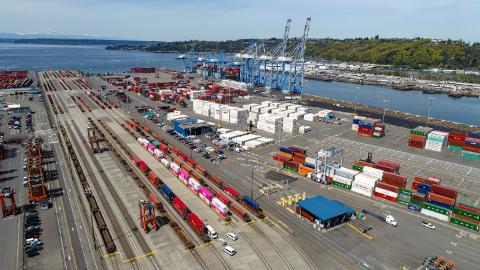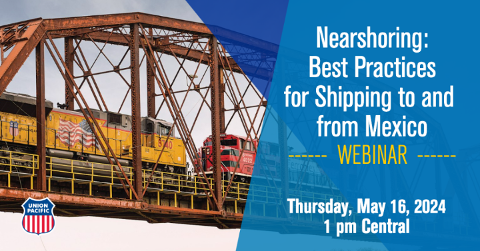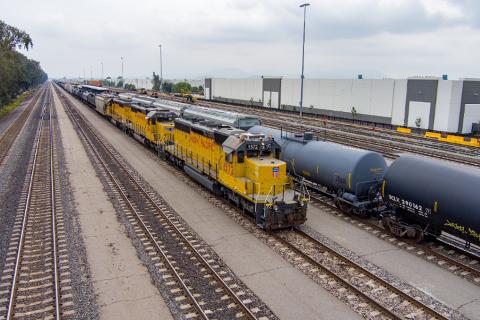API technology is transforming how we do business across just about every industry – including the world of freight logistics. At the cutting edge of innovation, APIs connect traditionally siloed sources of data, opening a door to improved processes, better communication and more efficiencies.
What Are APIs?

APIs power just about every mobile app you use, making it easy to access massive amounts of data within seconds.
You might be wondering, “What exactly is an API?” Otherwise known as “Application Programming Interface,” an API is a software intermediary that allows information to be shared between various technology platforms – essentially allowing one program to “talk” to another.
You may not realize it, but you most likely are interacting with APIs multiple times a day.
Let’s take a look at some real-life examples:
- Mobile Apps
APIs power just about every mobile app you use, making it easy to access massive amounts of data within seconds. Think about when you use a travel booking app, like TripAdvisor or Kayak. Thanks to APIs, these apps have the magic ability to find and upload price offerings for thousands of flights, car rentals, hotel rooms and other travel accommodations – eliminating the need to manually research every airline, rental car company and hotel one by one. Once you’ve found the best travel option on the app, because APIs are a two-way open door, you can make purchases directly through the app without having to navigate to your preferred airline or hotel’s website. Powerful, right?
- Payment
The ability to purchase something online is one of the biggest game changers when it comes to how we shop and do business today. Why? Because it’s SO easy. And who can we thank for making those transactions so simple and secure? That’s right. APIs. With the touch of a few buttons, payment APIs can process credit card and bank payments, help you keep track of recent purchases and help protect merchants from fraud.
- Calendar
If you happen to use a dining reservation app, like OpenTable, to secure reservations at your favorite restaurant, you may have seen your reservation directly entered into the calendar on your phone. How is that information magically transferred between two unrelated applications without you doing a thing? You guessed it. APIs.
How APIs Are Transforming Transportation

With APIs in the mix, real-time data is easily accessible, making it easier to provide accurate shipping quotes, view equipment capacity, track shipments and more.
APIs definitely make our everyday lives easier, but how are they impacting the transportation industry? Supply chains are complex with many players involved, and each of these players has siloed data. For the most part, it is not easy to share this data with all parties involved, resulting in inefficiencies and delays. It also impacts shippers’ ability to make educated decisions related to the whereabouts and status of their freight at any given time. APIs can alleviate some of these challenges and can help companies develop more efficient processes, create closer ties with customers and partners, and make it easier to complete basic daily tasks.
Here are a few of the ways transportation companies can benefit from APIs:
- Process Automation – APIs allow you to automate processes in your own system, combining your data with data from others sources. This removes manual work and saves time that would have been spent hunting for information and making routine decisions.
- Real-Time Data – With APIs in the mix, real-time data is easily accessible, making it easier to provide accurate shipping quotes, view equipment capacity, book freight, track shipments at any point along their journey and address any issues that arise.
- Cloud-Based and On-Premises Integration – APIs are used to help companies make the transition from “on-premises” custom solutions to cloud-based applications and enables them to speak to each other.
- Improved Customer Interactions and Better Decision Making – APIs provide easier access to more data, which leads to better decision making and more knowledge to understand customers’ needs. It also provides more time to focus on important things, like communication, building relationships and process optimization, rather than pushing paper.
For example, Union Pacific is currently piloting API technology to enhance their widely used Shipment Trace application. This technology will give customers the ability to trace their equipment in real time and allow for more direct communication throughout the shipping process. Union Pacific will be expanding its API capabilities later this year, further enhancing the services and integrations they offer their customers. Learn more by visiting the Union Pacific Development Center.
In the trucking world, some shipping companies are using APIs to automatically dispatch trucks to transport freight. Through the integration of APIs, dispatching freight is taking place with no human intervention required — completely automating supply chain transactions.
Are You Ready for API Technology?
To make the most of all APIs have to offer, shippers need to be thinking about how to take their current systems into the future. APIs are everywhere and continue to evolve, so it is important to begin working with your IT departments now to adapt systems, ensuring your current technology platforms and infrastructure are ready for the exciting future that lies ahead.
Interested in learning more about how APIs are revolutionizing the railroad? Contact us or sign up to receive ongoing updates.
Related Articles:
- So You Have to Cut Transportation Costs. What Do You Do Now?
- Can B2C Supply Chains Teach B2B a Thing or Two?
- Four Emerging Transportation Trends
- The Port-to-Store Movement: Big Picture Thinking for Supply Chain Success









